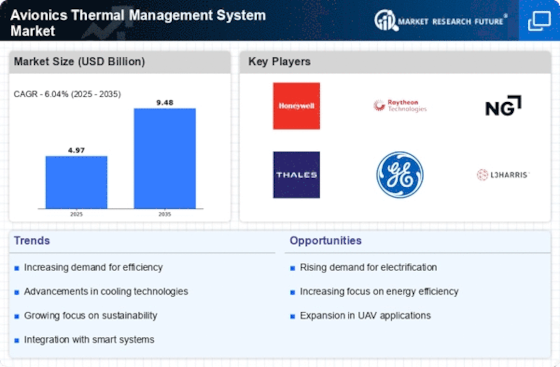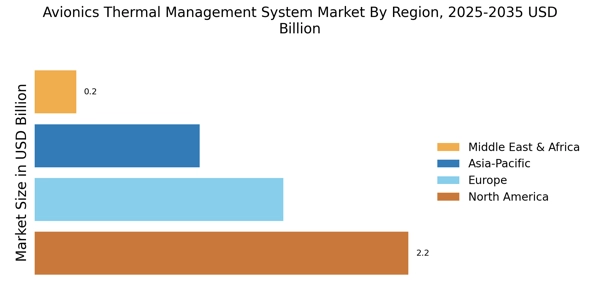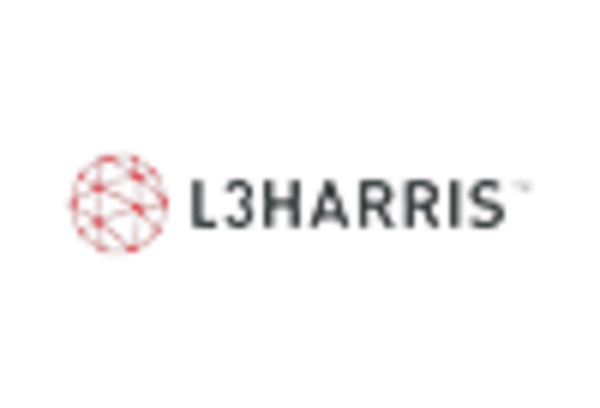Growth of Unmanned Aerial Vehicles (UAVs)
The avionics Thermal Management System Market is witnessing growth driven by the increasing adoption of unmanned aerial vehicles (UAVs). As UAVs become more prevalent in various sectors, including military, agriculture, and logistics, the demand for efficient thermal management systems is rising. UAVs often operate in diverse environmental conditions, necessitating robust thermal management solutions to ensure the reliability of avionics systems. The market for UAVs is projected to expand significantly, with estimates suggesting a multi-billion dollar valuation in the coming years. This growth is likely to stimulate demand for advanced thermal management systems tailored to the unique requirements of UAVs.
Regulatory Compliance and Safety Standards
The Avionics Thermal Management System Market is significantly influenced by stringent regulatory compliance and safety standards imposed by aviation authorities. These regulations necessitate the implementation of advanced thermal management solutions to ensure the reliability and safety of avionics systems. As aircraft become more sophisticated, the thermal loads on avionics increase, prompting manufacturers to develop systems that meet or exceed these regulatory requirements. The market is likely to see growth as companies invest in technologies that not only comply with existing regulations but also anticipate future standards. This proactive approach to safety and compliance is expected to bolster the demand for advanced thermal management systems.
Increasing Demand for Aircraft Modernization
The Avionics Thermal Management System Market is experiencing a surge in demand due to the ongoing modernization of aircraft. Airlines and military operators are increasingly investing in upgrading their fleets to enhance performance and efficiency. This modernization often necessitates advanced thermal management systems to ensure optimal operation of avionics components. According to industry estimates, the market for aircraft modernization is projected to reach substantial figures, indicating a robust growth trajectory. As older aircraft are retrofitted with new technologies, the need for effective thermal management solutions becomes paramount, driving the demand for innovative systems that can handle the heat generated by modern avionics.
Rising Focus on Environmental Sustainability
The Avionics Thermal Management System Market is increasingly influenced by a rising focus on environmental sustainability. As the aviation sector seeks to reduce its carbon footprint, there is a growing emphasis on energy-efficient thermal management solutions. These systems not only enhance the performance of avionics but also contribute to overall fuel efficiency, aligning with global sustainability goals. The market is likely to benefit from innovations that reduce energy consumption and emissions, as manufacturers strive to meet the demands of environmentally conscious consumers and regulatory bodies. This trend towards sustainability is expected to drive investment in advanced thermal management technologies.
Technological Advancements in Thermal Management
The Avionics Thermal Management System Market is propelled by rapid technological advancements in thermal management solutions. Innovations such as advanced heat exchangers, phase change materials, and active thermal control systems are becoming increasingly prevalent. These technologies enhance the efficiency and effectiveness of thermal management, allowing for better performance of avionics systems. The integration of smart technologies, such as IoT and AI, into thermal management systems is also on the rise, enabling predictive maintenance and real-time monitoring. As these technologies evolve, they are likely to create new opportunities within the market, driving growth and encouraging further investment in thermal management solutions.

















